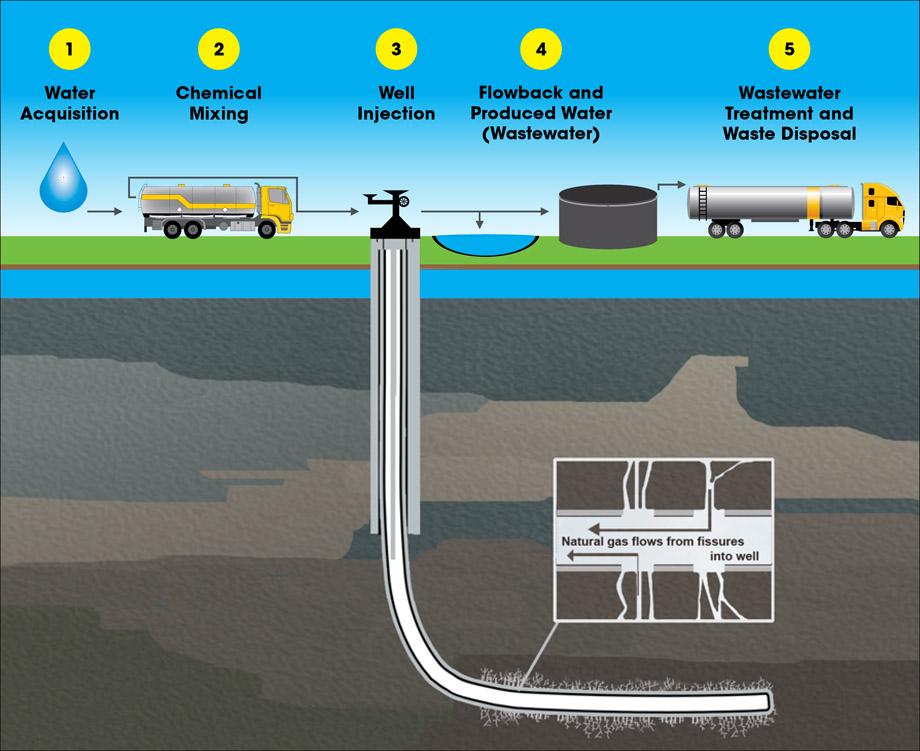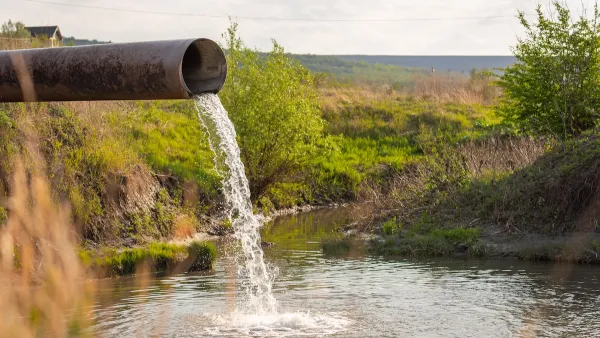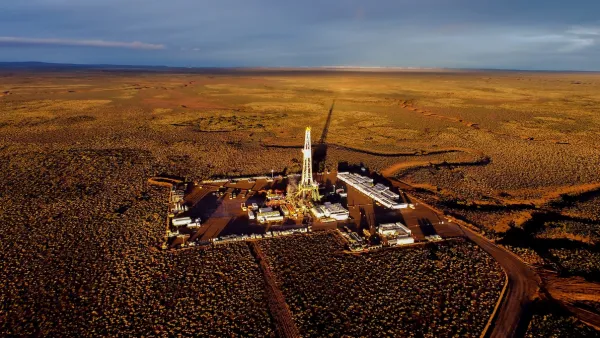According to a new EPA draft assessment, fracking has not caused pollution of drinking water, though concerns are raised. The report has yet to be reviewed by the Science Advisory Board and is now receiving public comment.
Based on the findings of the draft assessment, "the Environmental Protection Agency says it has found no evidence that hydraulic fracturing — better known as fracking — has led to widespread pollution of drinking water," reports Jeff Brady, energy correspondent for National Public Radio.

Credit: EPA: The Hydraulic Fracturing Water Cycle
"We found the hydraulic fracturing activities in the United States are carried out in a way that has not led to widespread systemic impacts on drinking water resources," [italics added] says Tom Burke, science adviser and deputy assistant administrator of the EPA's Office of Research and Development."In fact, the number of documented impacts to drinking water resources is relatively low when compared to the number of fractured wells," he adds.
The report, done at the behest of Congress, "is the most complete compilation of scientific data to date," says Burke, "including over 950 sources of information, published papers, numerous technical reports, information from stakeholders and peer-reviewed EPA scientific reports."
While the preliminary outcome is pleasing to the energy industry, environmentalists, who "have long argued fracking comes with a cost to the environment, especially to water," criticized the findings. In a press release, Food & Water Watch accused the study of having "the industry's oil fingerprints all over it:"
It is outrageous that the oil and gas industry refused to cooperate with the EPA on a single ‘prospective case study.’ This reveals the undue influence the industry has over the government and shows that the industry is afraid to allow careful monitoring of their operations.”
"The American Petroleum Institute says the conclusions echo what the oil industry has argued all along," writes Brady. “After more than five years and millions of dollars, the evidence gathered by EPA confirms what the agency has already acknowledged and what the oil and gas industry has known,” said API Upstream Group Director Erik Milito in their press release.
"The report also raises concerns about wells that are inadequately cased or cemented — something that can allow gases and liquids to migrate below ground," writes Brady. "Another area of vulnerability the EPA highlights in its report is how wastewater and fracking fluids from drilling operations are handled and treated."
Public comment is being accepted via the Federal Register.
Listen to the report here.
FULL STORY: EPA Finds No Widespread Drinking Water Pollution From Fracking

Analysis: Cybertruck Fatality Rate Far Exceeds That of Ford Pinto
The Tesla Cybertruck was recalled seven times last year.

National Parks Layoffs Will Cause Communities to Lose Billions
Thousands of essential park workers were laid off this week, just before the busy spring break season.

Retro-silient?: America’s First “Eco-burb,” The Woodlands Turns 50
A master-planned community north of Houston offers lessons on green infrastructure and resilient design, but falls short of its founder’s lofty affordability and walkability goals.

Test News Post 1
This is a summary

Analysis: Cybertruck Fatality Rate Far Exceeds That of Ford Pinto
The Tesla Cybertruck was recalled seven times last year.

Test News Headline 46
Test for the image on the front page.
Urban Design for Planners 1: Software Tools
This six-course series explores essential urban design concepts using open source software and equips planners with the tools they need to participate fully in the urban design process.
Planning for Universal Design
Learn the tools for implementing Universal Design in planning regulations.
EMC Planning Group, Inc.
Planetizen
Planetizen
Mpact (formerly Rail~Volution)
Great Falls Development Authority, Inc.
HUDs Office of Policy Development and Research
NYU Wagner Graduate School of Public Service



























